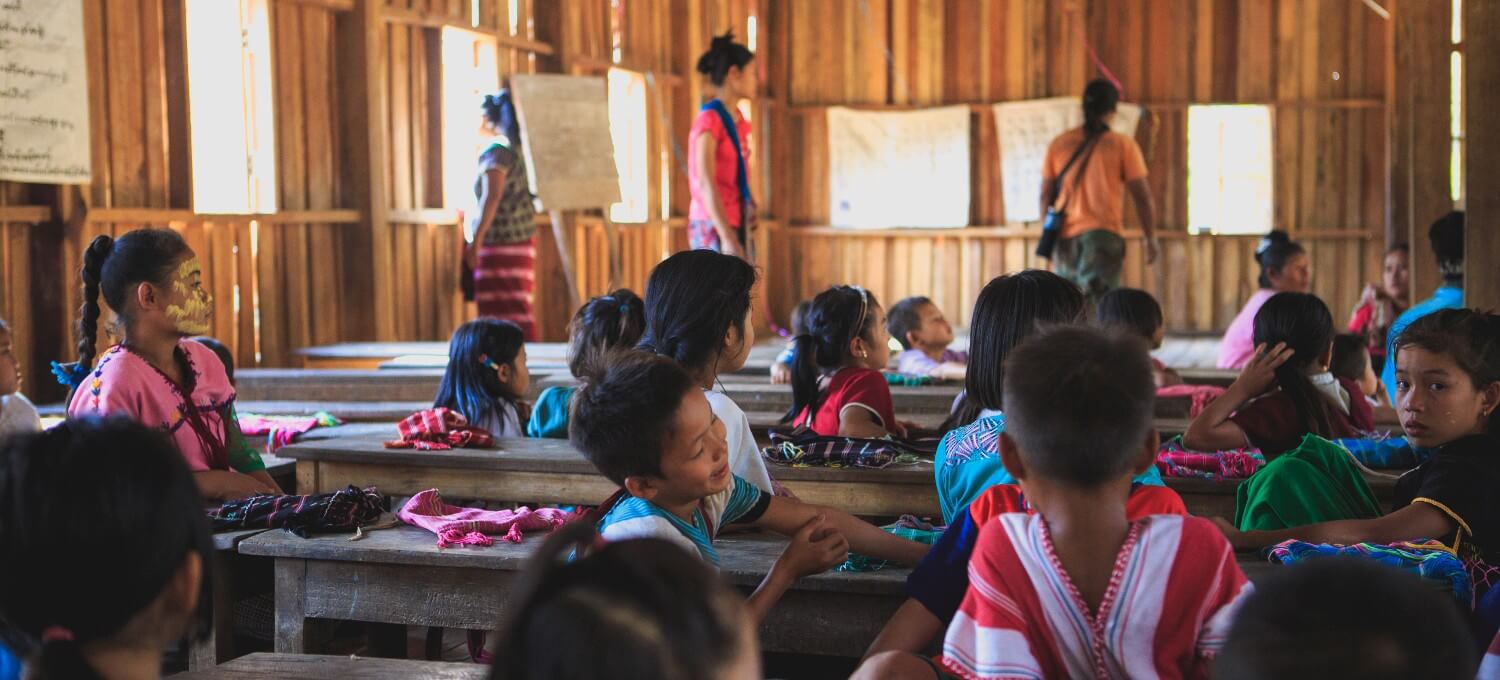- Education is the best weapon against intolerance. The better we get to know ourselves, our colorful world and our fellow human beings, the more conscious and humble we become.
- Education promoting love, kindness, and respect toward other people creates tolerance. We should not only impart knowledge of the subject but also knowledge of the heart and responsibility.
- God’s plan for diversity among human beings and in nature should become part of the classes in ethics. The values of the world ethos, the Codes of Tolerance as well as the basic documents of the United Nations and the interreligious congresses, such as the Chicago conference in 1993, should become part of the curricula in schools. The aim of education should not be the leveling out of differences and the homoge- nization of young people, but the cultivation of diversity.
- Schools should provide basic knowledge concerning other religions and cultures, as they are part of a diverse world in which young people experience. Conversations with representatives of other religions and minorities are indispensable and should be integrated into classes.
- Textbooks should be particularly careful in their formulations. They must not stir up prejudice against other religions and minorities. On the contrary, they must emphasize what they have in common and what is good.
- Languages are a gateway to the world. In schools, they should not only be taught technically, but in a way that brings awareness of other customs so that a mixture of cultures can develop. All students should learn the world language English as perfectly as possible. By doing so every pupil can tap into the world through the internet and international travels. Student exchange programs are particularly important for an open understanding of the world. In school and in study groups the students should learn to solve conflicts peacefully and to take responsibility for their actions.
Best practices:
- The German-French Textbook Commission, with the support of the prestigious “Georg Eckert Institute for International Textbook Research” in Braunschweig, has examined the textbooks of the former archenemies Germany and France. Prejudices against the neighbor were removed and a more objective history curriculum for students in both countries was formulated. The Institute supports also other countries in formulating balanced curricula (www.gei.de).
- The “A World of Difference Institute” of the American Anti-Defamation League supports different programs in several countries which promote the understanding of diversity (www.adl.org).
- In Northern Ireland, the “Education for Mutual Understanding” (EMU) initiative strives for reconciliation between Protestant and Catholic children. In 1990, this program was introduced in schools as part of an educational reform (www.ulst.ac.uk).
- As early as 1919, the “International Fellowship of Reconciliation” (IFOR) was founded in the Netherlands. This global organization campaigns for concrete reconciliation and understanding in 53 countries. Among the larger projects are the Pan-African Reconciliation Council and the Middle East Non-Violence and Democracies Initiative.
- The mixed Jewish-Arab teams of the OneVoice Movements in Ramallah, Gaza and Tel Aviv are committed to reconciliation in the Holy Land. Together with the Palestinian Ministry of Education, the organization organized an essay competition in which more than 2,000 school children participated. “Imagine the beautiful future in Palestine in 2018,” was the challenging task. In Israel an essay competition was also organized, in cooperation with the Ministry of Education, in which Israeli children described their ideas of a peaceful future (www.onevoicemovement.org).
- In Germany, several textbooks that promote understanding of other religions have been published. Among these are: Clauß Peter Sajak, Kippa, Kelch, Koran. Interreligiöses Lernen mit Zeugnissen der Weltreligionen (Kippa, Chalice, Qur’an. Interreligious Learning with Testimonies from the World Religions, Munich 2010) and Werner Trutwin, Wege zum Licht. Die Weltreligionen (Paths to Light. The World Religions, Düsseldorf, 1996).
- Teaching Tolerance is a collection of materials and a magazine for school children from Alabama (USA), in which extremism and prejudices against others are addressed. Ways of teaching tolerance are presented on their website (www.tolerance.org).
- In Great Britain, the Tolerance International Foundation (www.toleranceinternational.org) promotes 88 “Tools for Tolerance.” The “Embracing Tolerance Youth Program” instructs young people in moral and cultural competences.
From the book “Love is Tolerance” by Hubertus Hoffmann
